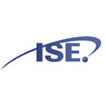Litigation Guides (Digital Evidence and Witnesses)
Guides Related to Collecting and Using Digital Evidence
The National Institute of Justice has published a series of guides for law enforcement and prosecutors who are investigating cyber crime. These guides were developed by consulting technical working groups in order to determine how practitioners address many of the issues currently faced by law enforcement and prosecutors. To date, several guides covering different topics have been published.
- Digital Evidence in the Courtroom provides information for prosecutors who seek to use digital evidence during trials. For purposes of this document, “digital evidence” is defined as “[i]nformation stored or transmitted in binary form that may be relied on in court” (73). This guide covers everything from the initial seizure of the evidence to its presentation in court.
- Electronic Crime Scene Investigation: A Guide for First Responders provides information for persons who may encounter electronic evidence in a crime scene. This guide starts with the assumption that law enforcement has the legal authority to obtain the electronic evidence and has already secured and documented the scene. It provides information both for the individual officer tasked with collecting the evidence, and the supervisor who tasked with developing resources and establishing best practices within their department.
- Forensic Examination of Digital Evidence: A Guide for Law Enforcement provides information for law enforcement officers tasked with processing and examining digital evidence. It includes both a description of best practice in digital evidence processing and a series of case studies demonstrating how law enforcement may collect and process digital evidence.
- Investigations Involving the Internet and Computer Networks provides information for persons conducting criminal investigations related to the internet. It includes specific information about email, websites, chat rooms, and file sharing networks, among others. It also supplies examples of legal documents that can be used to obtain information from internet service providers and other internet-related companies.
- The Office of Legal Education has released a guide entitled Search and Seizing Computers and Obtaining Electronic Evidence in Criminal Investigations, which provides extensive information for prosecutors interested in digital evidence collection. It includes chapters on computer searches with and without a warrant, the Stored Communications Act, electronic surveillance, and evidentiary issues. This is a comprehensive and detailed source for those interested in gathering electronic evidence.
- Bloomberg’s eDiscovery Resource Center is a suite of resources specifically intended to assist with digital discovery and evidence. It includes both the text of relevant statutes and case law, as well as examples of forms to use in obtaining digital evidence. Links to external legal resources, such as the Federal Judicial Center, are also provided. A subscription is required to use this content, although a free trial may be available.
Guides to Finding Expert Witnesses
- In addition to providing information on case law, Google Scholar is a comprehensive resource for locating academic publications in all areas, including cyber crime and security. Search terms can be narrowed by time, and users can set up alerts in order to keep up-to-date on emerging issues. This may be a potential resource for locating an expert in a particular subject area, based on their prior research.
- The Social Science Research Network (SSRN), a repository of abstracts and academic articles from a variety of social science disciplines, is another valuable resource for locating information about expert witnesses. SSRN may be used to find experts in particular subject areas to serve as witnesses. In addition to conducting research on technical issues related to cyber crime and cyber security, SSRN can be used to search for publications by opposing expert witnesses, as part of preparing for cross examination.
- In addition to serving as resources for general legal research, FindLaw and Justia both have expert witness directories that can be used to find experts related to computers and electronic surveillance.
- The Better Business Bureau (BBB), an organization that evaluates the reliability of various business entities, may provide information about businesses that provide expert witness services, and may be used to either find a potential expert witness or prepare for cross-examination of an opposing expert witness. The BBB provides ratings for commercial organizations, information about government actions against the business, and allows customers to post complaints and reviews.
- State agencies analogous to the Department of State, Divisions of Corporations usually contains a search function that allows users to search for companies incorporated within that state. It can be used to obtain information about corporate ownership, history, and postal address for service of legal process. For example, see
http://www.dos.ny.gov/corps/bus_entity_search.html. - State consumer protection agencies, such as the Department of Consumer Affairs, often provides information about business licensing within the state and consumer complaints against commercial entities. This information may be useful for researching a potential expert witness or preparing for cross-examination of an opposing witness. For example, see https://dcra.dc.gov/consumer-protection
Other Practice Resources
- The Department of Justice’s Guide to Best Practices for Victim Response and Reporting of Cyber Incidents instructs organizations that use the internet in best ways to plan for a cyber attack before one occurs, and the best ways to respond once such an attack does occur. It also provides an explanation about what not to do should a cyber attack occur. This document may be useful for public outreach to organizations that could be the victim of a cyber attack.
- The Prosecutor’s Encyclopedia is a prosecutors-only resource for a broad range of practice-oriented information, including issues related to cyber crime prosecutions. The encyclopedia provides both general legal information and descriptions of best practices for various types of prosecutorial activities. Housed by the New York Prosecutors Training Institute, the user must be a current prosecutor and be vetted by the site in order to use these materials.






